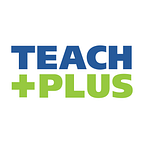Let’s Collaborate to Create a Better System for Our Students
By Hjamil Martinez-Vazquez
Recently, I was talking to a friend who asked me how I was doing. As I reflected on this year and its challenges — 2022 is already feeling harder than 2021 — I also thought of the many opportunities for growth and the transformation of education.
In my work as an educator, I have learned that relationships are essential. For example, my fifth grade class is thriving this year. Because I was their teacher last year, I was able to build relationships with students and their families. My fourth graders are able to see the relationships I’ve built with their peers, and we are working on growing that trust, which translates into not just better academic performance, but also better social emotional skills.
That trust allows them to create community together as they challenge each other. Pedro, a fourth grader came to me a few weeks ago and said: “Yo sé que yo no estoy haciendo buen trabajo en los exámenes, pero por primera vez sé que puedo mejorar y que usted confía que yo lo voy a hacer. Nunca había tenido un maestro de lectura que confiara en mí.” (I know I’m not doing very well on the tests, but for the first time I know that I can make it better and that you trust me to do that. I have never had a reading teacher who trusts me enough.) What a vote of confidence this is and a testament to the importance of trust and relationships.
We as educators should do everything we can to support and nurture relationships. But we also need professional development on how to build relationships, and how to teach a class that’s rooted in relationship-building.
In my fifth grade class, I have a student named Jason who lost his father to Covid. Despite this loss and the associated trauma, Jason has grown socially and emotionally, and has gotten better grades. He still has rough moments, but his peers have shown up for him and helped him. This is a testament to the community we created as a classroom. I had access to a toolkit on social emotional learning created by educators and other specialists, and in it I was able to find tools and ideas on how to deal with pain. Before Jason returned, I talked to my students, and we learned how to create a community around pain. We struggle, but we do it together and that is how we have been able to thrive. We need help reproducing this approach in classrooms and schools and making sure teachers not only understand the importance of such communities but also have the tools and support to build them.
The pandemic has jumpstarted conversations about mental health, but teachers are still siloed. We must collaborate with specialists in other fields so that we can find smart ways to address the mental health issues in our schools and communities. Together, we can be stronger and build a new system.
This is a moment to rethink learning. We cannot go back to the same way of doing education because we know it doesn’t work. We must learn from the pandemic so we can build a better system for our students. Recently, I participated in the Teach Plus Phoenix Project, a blueprint for innovating the profession. I collaborated with teachers around the country to include the varied perspectives of students, teachers, and families. Among the recommendations in the Phoenix Project is establishing structures that prioritize the teacher-student relationship and the redesigning of schools to promote meaningful family-school partnerships. In the same way that this project came together through the collaboration of many different voices, the re-thinking and re-structuring of education is possible if we work together.
Collaboration is one of the things closest to my heart. Let’s collaborate to create a better system for our students, our families, and all of our communities. We need solutions that can evolve to reflect the moment we’re in. We need to be prepared to serve our students’ needs. This can only happen through community-building, collaboration, and focus on social-emotional learning as much as academics. It can only happen if we think bigger and bolder and are prepared to innovate.
Hjamil A. Martínez-Vázquez teaches 4th/5th grade SLAR/ELAR at ACE Demonstration and Design Lab at J.A. Hargrave Elementary in Crowley, Texas. He is a Teach Plus Texas Senior Policy Fellow.
